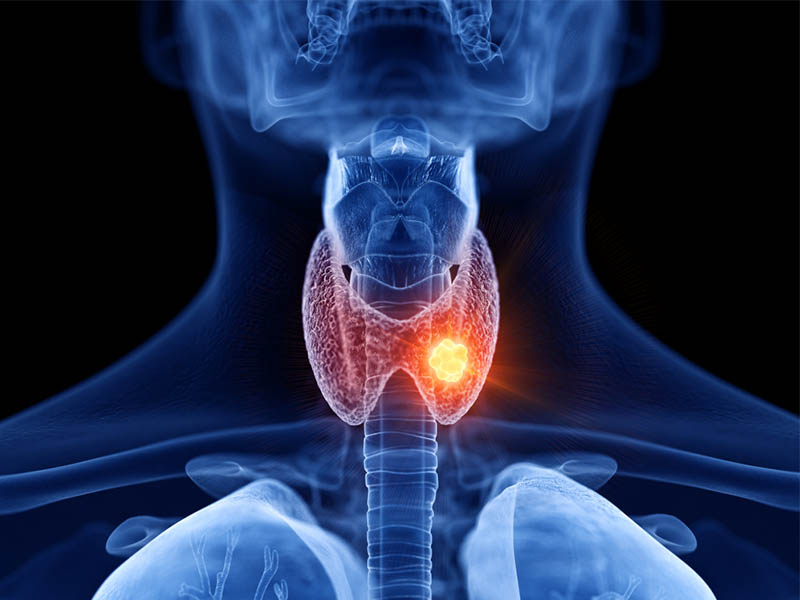Having some health issues but not sure why? It could be linked to your thyroid gland and the hormone it produces. Here, DR DENNIS LIM, an oncology surgeon with expertise in head and neck surgery, shares some conditions associated with the thyroid hormone – and why it’s worth getting screened, even if you don’t have a thyroid nodule or other symptoms.
What exactly is a thyroid gland?
It’s a gland that performs one function: to produce the hormone thyroxine. Patients often ask what thyroxine does, but really, the question is, “what doesn’t it do?.” It’s involved in every metabolic function in the body, from digestion and heart function to brain development and bone health. If you don’t produce thyroxine and do not replace it, you will eventually die.

So, what can go wrong?
The thyroid can stop producing thyroxine (a condition called hypothyroidism) or it can produce too much (hyperthyroidism). The former can be treated with a daily thyroxine tablet. The latter is the more common disease of the gland. Symptoms of hyperthyroidism might include sweating, muscular weakness and loss of weight despite a good appetite.
Luckily, the thyroid gland’s function can easily be replaced. If need be, medication or radioactive iodine can be given to destroy the thyroid, and the patient can supplement with daily thyroxine tablets.
When might surgery be necessary?
It’s very common for solid or fluid-filled lumps or nodules to form within the thyroid gland, even when it’s functioning normally. While the majority of nodules are benign and do not need intervention, those with higher suspicion may need further evaluation. And, if thyroid cancer is found, surgery would be the most effective treatment option.
Surgery might also be necessary if a nodule is not cancerous but grows large enough to become bothersome – for instance, it causes difficulties swallowing or neck pain. Otherwise, surgery is not advised.
Should a nodule be evaluated by a doctor even if it’s not bothersome?
Yes, a visit to your doctor is recommended, as thyroid nodules can be insidious. An evaluation of the thyroid gland usually starts with a blood test to measure the thyroid hormone in the blood and an ultrasound of the gland to detect any signs of cancer – both of which can be done on the same day in my practice.
Is thyroid screening recommended even if there are no obvious signs of nodules?
While there isn’t a formal screening recommendation for thyroid nodules, screening for them certainly can’t hurt, as there is zero risk posed by thyroid ultrasounds.
Ultrasound is very safe, consistent and informative in the management of thyroid nodules. Like a mammogram or PAP smear, an ultrasound is structured and repeatable. It’s a surveillance method that allows us to keep an eye on the nodule without needing to do a biopsy or surgery.
If further evaluation of a suspicious nodule is needed, we use a system of reporting called Thyroid Imaging Reporting and Data System (TI-RADS). Nodules with higher suspicion may need biopsy and those that have low likelihood of malignancy may only need monitoring and follow-up.
It’s worth checking whether thyroid screening is available in your screening package and, if it is, do it.
To book an appointment, call 6836 5167 or email enquiry@dennislim.com.sg.
Dennis Lim Surgery
#11-09 Mount Elizabeth Medical Centre
3 Mount Elizabeth
dennislim.com.sg
This article first appeared in the October 2022 edition of Expat Living. You can purchase the latest issue or subscribe, so you never miss a copy!






